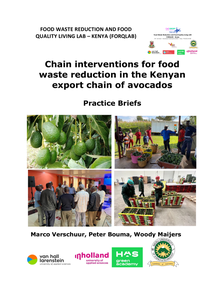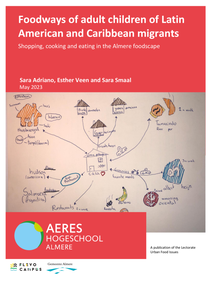Waste disposal management and the energy crisis are important challenges facing most countries. The fruit-processing industry generates daily several tons of wastes, of which the major share comes from banana farms. Anaerobic digestion (AD) technology has been applied to the treatment of wastewater, animal slurry, food waste, and agricultural residues, with the primary goals of energy production and waste elimination. This study examines the effect of organic loading (OL) and cow manure (CM) addition on AD performance when treating banana peel waste (BPW). The maximum daily biogas production rates of banana peels (BPs) with a CM content of 10%, 20%, and 30% at 18 and 22 g of volatile solids (gvs) per liter were 50.20, 48.66, and 62.78 mL·(gvs·d)−1 and 40.49, 29.57, and 46.54 mL·(gvs·d)−1, respectively. However, the daily biogas yield showed no clear interdependence with OL or CM content. In addition, a kinetic analysis using first-order and cone models showed that the kinetic parameters can be influenced by the process parameters.
LINK
Banana is an important commercial fruit crop for smallholder farmers in Arba Minch, southern Ethiopia. However, its sector is experiencing many constraints and limited attention given to productivity and marketing. Therefore, this study was conducted to analyze the banana value chain in order to identify constraints on productivity and marketing, and possibilities of improvements towards a sustainable value chain in Arba Minch. Data were collected through a survey, key informants’ interviews, and focus group discussions. Different analytical and statistical tools were used for data analysis. Results describe actors, supporters, and influencers of the existing banana chain. The current banana chain has three different distribution channels in Arba Minch. The channel that connects with rural consumers has the highest value share for farmers while the channel that includes traveling traders has the lowest value share for farmers. The marketing cooperative channel has an intermediate value share for farmers in the chain. Poor agronomic practice, diseases, pests, and climate change were the major constraints for the banana yield while limited market information, lack of cold store and refrigerated trucks, poor post-harvest handling, lack of alternative markets, and weak capacity of cooperatives were the main constraints for banana marketing in Arba Minch. Economic, social and environmental indicators have a moderate sustainability performance within the Ethiopian context. The chain has an advantage in terms of profitability, employment, emission of air pollutants and constraints in terms of coordination, value share, profit margin, market diversity, product and market information, transportation, waste management, and safety and hygiene.
DOCUMENT

This paper assesses the sustainability performance of the banana value chain by comparing and discussing 25 attributes owing to different sustainability dimensions. The paper identifies critical aspects and provides a qualitative assessment of the sustainabilityperformances of banana chains at the local level. The study finds economic, social, and environmental indicators have moderate sustainability performance in the Arba Minch, Ethiopia. The chain has an advantage in terms of profitability, employment, and emissionof air pollutants; and constraints in terms of coordination, value share, profit margins, market diversity, product and market information, transportation, waste management, and safety and hygiene.
DOCUMENT

In this publication, the four authors provide several solution directions to shape that transition to a new, sustainable agricultural system. With a different relationship between food production and nature and the environment. It is the - necessary - basis for a good agricultural agreement. And the way to work towards a sustainable future for our agricultural sector and food system.
DOCUMENT

This magazine presents the highlights of the applied research project “Inclusive and climate-smart business models in Ethiopian and Kenyan dairy valuechains (CSDEK)”. The CSDEK applied research project was conducted in six case study areas, three in Ethiopia and three in Kenya. At the time of publishing this magazine, research was still ongoing in some of the study areas. The projectteam and researchers hope to contribute to creating awareness of climatesmartdairy practices and development of the dairy sector in Ethiopia and Kenya. In two of the study areas, collaboration between VHL and dairy stakeholders will continue, preferably through local networks in a Living Lab approach.
DOCUMENT

Ghanaian farmers suffer from a decline in cocoa production partly due to damages and diseases from insect pests. To increase predation by bats on insects on the cocoa plantations we installed two different types of bat boxes on 15 plantations around the village of Buoyem. Bat activity, bat species composition (numbers of insectivorous and frugivorous bats) and insect abundance were measured before and after bat box installation. Insectivorous bats were present on all ofthe sampled plantations, namelyleaf-nosed bats (Hipposideros sp.), slit-faced bats (Nycteridae sp.), horseshoe bats (Rhinolophus sp.) and vesper bats (Vespertilionidae sp.). Furthermore, no correlation between insect abundance and bat activity could be detected. The bat boxes were not occupied yet during the research period since rainy season started in the second half of the measurements and bat activity decreases with increasing precipitation which is supported by our Un dings. Additionally, the available time period between in stallation and measuring of the effects of the boxes was very short when compared to similar researches. Bats alsohave different preferences per species for size and shape of bat boxes and the number of naturally available roosting sites also influences bat box occupancy. Our results suggest that bats are abundant above cocoa plantations in Buoyem and therefore bat boxes have the potential to be ahelpful tool in insect pest control.
DOCUMENT

Smallholders are a substantial part of the oil palm sector and thus key to achieve more sustainable production. However, so far their yields remain below potential. The Roundtable on Sustainable Oil Palm (RSPO) aims to include smallholders in sustainability certification to strengthen rural livelihoods and reduce negative environmental impacts. This study aims to determine if and how certified smallholders perform differently from their non-certified counterparts in terms of management practices and yields, and to what extend this is related to RSPO certification.
DOCUMENT

Even though mango productivity in Ethiopia is low due to moisture stress, there is no report on how such constraint could alleviate using Cocoon water-saving technology. Cocoon is small water reservoir technology which uses for plant growth in dry season. The objectives of this study were to introduce and evaluate effectiveness of water-saving techniques on mango seedlings survival and growth in Mihitsab-Azmati watershed, northern Ethiopia. In this experiment, five treatments of water-saving techniques with mango seedlings were evaluated. These were: Cocoon sprayed by tricel (T1), Cocoon painted by used engine oil (T2), Cocoon without tricel and oil (T3), manually irrigated seedlings (T4) and mango seedlings planted during rainy season (T5). The survival and growth performance of mango seedlings were recorded at six months and one-year after transplanting. Data on plant survival, height, number of leaves per plant, shoot length, stem diameter and crown width were subjected to analysis of variance and t-test. There were significant differences in the treatment effects on mango seedlings transplanted survival, plant height, number of leaves per plant, shoot length, stem diameter and crown width measured at six months and one-year after transplanting. The lowest survival rate (20 %) was found during both data collection time in T5. Six months after transplanting, the highest growth parameters were measured from T1 whereas the lowest was from T5. However, one-year after transplanting, the highest growth parameters were measured from T3. Plant heights increments between the two measurement periods for T3, T2, T1, T4 and T5 were 45.1, 38.5, 24.8, 9.8 and 7.0 cm, respectively; indicating that T3 performed better than the other treatments. The t-test on mean differences between the same growth parameter measured at 12 and six months after transplanting also showed significant differences. The Cocoon water-saving technology was superior in improving mango seedlings survival and growth in the study area. This study generalized that Cocoon seems promising, sustainable and highly scalable with mango seedlings at large-scale in the study area conditions. However, this technology should not be assumed to perform uniformly well in all environmental conditions and with all tree species before demonstrated on a pilot study.
DOCUMENT

This booklet presents the practice briefs (popular papers) of master and bachelor theses and business assignments of students at three Dutch Universities of Applied Sciences: Van Hall Larenstein (VHL), InHolland and HAS Green Academy, and Meru University of Science and Technology in Kenya. All theses and business assignments were commissioned through the researchproject entitled “Food Waste Reduction and Food Quality Living Lab (FORQLAB)” in Kenya.
DOCUMENT

The research sets out to explore what adult children of migrants consider to be their eating culture and food identity. We do so by looking at how they shop, cook, and eat on a daily basis and what foods they feel connected to. A secondary goal of this research is to understand how important sustainable food is for this group. For this report, we invited adult children of migrants, who grew up in Almere to share their stories. Being born in the Netherlands with parents who were born abroad – in our case Latin-America and the Caribbean – children of migrants grow up in two different food environments simultaneously. Outside the home, they are surrounded by a Dutch food environment, while the eating patterns in and around their household or wider family setting may reflect the backgrounds of their parents.
DOCUMENT
